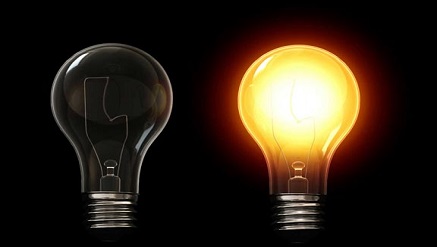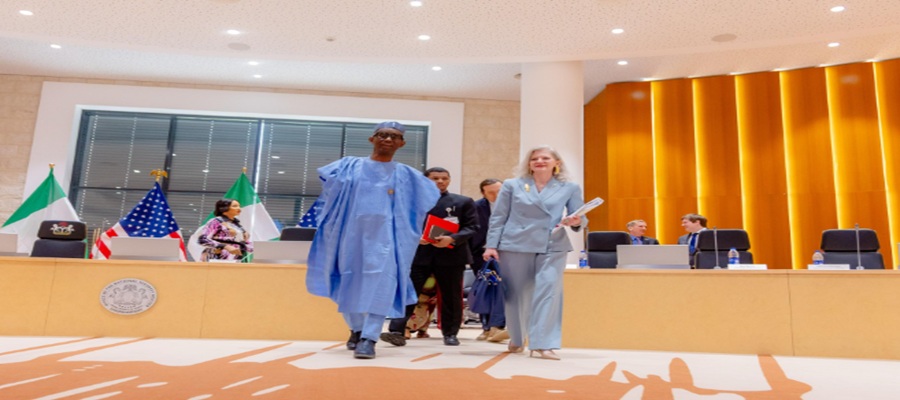General News
How and Why Goodluck Failed to Fix Electricity

Prof. Chinedu Nebo, former minister of Power, has asked the new government to wield the big stick which the immediate past government could not muster to deliver reliable electricity power supply to Nigerians.
The Guardian reported that Nebo also gave excuses why the government he served for two years and three months failed to improve electricity supply in the country.
He advised President Muhammadu Buhari, to “Wield the big stick and ensure there is gas to power if power generation is to improve.’’
Blaming inadequate gas supply and vandalism for the failure of the government he served, Nebo claimed that there are huge investments in the National Integrated Power Project (NIPP) and other investments in power generation had led to a historic 6000 megawatts installed generation capacity at handover.
Nebo said: “I hate excuses. But I would say that commitments were made to give us gas, but we didn’t get the gas. It is just as simple as that. It is very painful. I also blame vandalism.
According to the Guardian, but much of the blame goes to the oil firms and gas producers for what I consider their hypocrisy.
“They have been hypocritical with this whole issue of making sure that we have gas and helping us bring Nigerians out of darkness.”
He accused gas producers of being more interested in exporting the nation’s gas and diverting what remained for the domestic market to industries, instead of the power sector where it is greatly needed.
On generation, he said: “I regard the NIPP project as a huge benefit to this country. It wasn’t President Goodluck Jonathan’s administration that started it. It was started under the Olusegun Obasanjo administration, but it was left to fizzle out until President Jonathan came on board. He re-energised it and got all the three arms of government to agree to continue and complete the 10 plants.
‘‘In fact, the NIPP projects are contributing more power than the legacy Power Holding Company of Nigeria (PHCN) power plants to the national grid today. I would say that Jonathan’s administration did phenomenally well. Most of the NIPP projects had been completed, with a few on-going.
‘‘Again, privatisation and commercialisation of these plants are still ongoing. The completion of the privatisation of the other assets of PHCN was wonderful, because the entire process was adjudged to have been very transparent by global referees and umpires who observed the whole process and who certified it was very accountable.
“Since then, the private sector has injected so much to revive ailing turbines, much more than government could ever have found the money to do. Today, we have Egbin Power Plant adding over 220mws, Ughelli over 400mws.
But my two regrets, however, are that we lost the war against vandalism and we lost the war against inadequate gas supply.
“This new government should take a cue and make sure that the petroleum sector does what it ought to do to make sure that there is enough gas going to the power plants. It is very critical. If the new administration does not do that, Nigerians are going to keep suffering in darkness.”
On vandalism, he noted: “I do hope that the administration would also fight vandalism and bring the vandals to their knees. If we don’t do that, we are still going to have a problem. Every two weeks, the gas pipelines are blown up.
It takes two weeks to fix them only for them to be blown up again within 24 to 48 hours of fixing.
‘‘It cost over N120 million and thereabouts every month to fix the pipelines that are damaged. But recently, it is costing over N1billion plus to make sure that the integrity of the transportation of the gas-to- pipeline is maintained.
“I think it is scandalous that we produce over 5 billion scf of gas every day, sell 4 billion and retain only 1 billion scf for local use. The one for local use is preferentially given to industries and not to power, starving the power sector of the needed gas to industrialise this country and I think that is a shame.”
He was full of encomiums for Jonathan, noting that a good foundation had been established in power generation capacity.
He said: “For generation, as I have said, the NIPP projects have been great and many of them are coming on board, and more and more plants would be ready. If there is gas, it shouldn’t take long before every Nigerian would know that a lot happened in the last few years with regard to the power sector.
‘‘It is very important that we look at the score cards.
For two years and three months, I was Minister of Power. Looking back, it hasn’t been a bed of roses. Even if it were a bed of roses, when you have roses, you have thorns. In fact, sometimes, we have seen more thorns than the roses. But we are grateful to God that the power sector has really come a long way.”
“Thankfully, a lot of funding has being injected into the transmission infrastructure. The grid is being strengthened, and for the first time, we were able to hit a peak of over 100,000 mega watts hours in a day within the Jonathan administration that the grid handled. We had less collapsing of the grid. We used to have systems collapse all the time. It is now minimised.
“With regards to distribution, privatisation, of course, has helped. Discos are now under the private sector. One or two are doing well, and the others are either average or not doing well. But I think government should continue to create an enabling environment. The hich will now give the power to the Discos. So, the Discos are suffering, simply because there is not enough power, and many of them are not able even to find enough money to keep them afloat. They need money in order to remain afloat.’’
On how to solve the power supply problem, Nebo said: “The best way, the quickest way, the most inexpensive way of making sure that Nigerians get power, adequate power and eventually 24/7 power is embedded generation or distributed power.
‘‘If you have embedded generation, 10mws or 20mws, by the time you put 20mws in 10 different places, you would have 200mws. You can do that in one year. But for a mega 200, 400, or 500mw plant, it is a different thing entirely. By the time you build that, starting from concept, to design and financing, getting international partners, the partial risk and national sovereign guarantee, it would have taken five to six years.
“While in one year, you can have 50 of 20mws plants that translate to 1000mws, trying to do one mega plant of 1000mws takes five years. This means that we can actually give Nigerians 2000mws of power by embedded generation or distributed power every year, till the year 2020. With that, we will meet our target.”
He also called for action on the Petroleum Industry Bill (PIB), noting that it would liberalise the market, and make it easier for more gas to be available.
The Guardian discovered that many people residing in the suburbs and villages are connected directly to the electricity poles without meters and they pay cash monthly, to marketers.
One such customer told The Guardian: “I approached the electric people in my area of Lagos for a meter and I was told that prepaid meters are not available. One of the marketers advised that I should pay N25,000 to get an account generated for me to enable me get connected and get bills from the Disco on a monthly basis, which I agreed.
‘‘The marketer collected the money from me without proof of payment and connected electricity supply to my apartment that same day with a promise to send me a bill by the end of that month. I was surprised at the end of that month, the bill was not sent, but the marketer came to demand N3, 000, which is supposed to be my monthly bill. He collected it with another promise to send the bill by the end of the second month, which I never got. This continued until I complained to a higher authority before they now started sending bills to me.”
The Guardian also discovered that most of the shops and houses in Aja, Okota, Agege, Sango, Ikorodu, Epe areas do not have meters, but rather, the marketers collect the money in cash every month.
The investigation also showed that most of the houses in the villages across the country are not connected to electricity meters, though the residents pay monthly to marketers.
For example, virtually all the houses in Atuagbo Uneah in Esan Central Local Council of Edo State are not connected to meters, but directly to the electric poles. The customers do not get monthly bills, but pay cash directly to marketers.
Also, in Npkehi, in Owerri North Local Council of Imo State, residents make monthly payments to workers of Enugu Disco who neither give them bills nor receipts.
The fact is that some marketers are feeding fat on the desperation of Nigerians with the excuse of non-availability of prepaid meters.
Lamenting the poor power supply in the country, Buhari at his inauguration, had said that despite the about $20 billion expended in the electricity sector in the last 16 years, no significant achievement has been recorded.
He however, vowed to tackle the issue of power supply during his tenure.
General News
Why Nigeria’s Banks Still on Shaky Ground with Big Profits, Weak Capital

By Blaise Udunze
Despite the fragile 2024 economy grappling with inflation, currency volatility, and weak growth, Nigeria’s banking industry was widely portrayed as successful and strong amid triumphal headlines. The figures appeared to signal strength, resilience, and superior management as the Tier-1 banks such as Access Bank, Zenith Bank, GTBank, UBA, and First Bank of Nigeria, collectively reported profits approaching, and in some cases exceeding, N1 trillion. Surprisingly, a year later, these same banks touted as sound and solid are locked in a frenetic race to the capital markets, issuing rights offers and public placements back-to-back to meet the Central Bank of Nigeria’s N500 billion recapitalisation thresholds.

The contradiction is glaring. If Nigeria’s biggest banks are so profitable, why are they unable to internally fund their new capital requirements? Why have no fewer than 27 banks tapped the capital market in quick succession despite repeated assurances of balance-sheet robustness? And more fundamentally, what do these record profits actually say about the real health of the banking system?
The recapitalisation directive announced by the CBN in 2024 was ambitious by design. Banks with international licences were required to raise minimum capital to N500 billion by March 2026, while national and regional banks faced lower but still substantial thresholds ranging from N200 billion to N50 billion, respectively. Looking at the policy, it was sold as a modern reform meant to make banks stronger, more resilient in tough times, and better able to support major long-term economic development. In theory, strong banks should welcome such reforms. In practice, the scramble that followed has exposed uncomfortable truths about the structure of bank profitability in Nigeria.
At the heart of the inconsistency is a fundamental misunderstanding often encouraged by the banks themselves between profits and capital. Unknown to many, profitability, no matter how impressive, does not automatically translate into regulatory capital. Primarily, the CBN’s recapitalisation framework actually focuses on money paid in by shareholders when buying shares, fresh equity injected by investors over retained earnings or profits that exist mainly on paper.
This distinction matters because much of the profit surge recorded in 2024 and early 2025 was neither cash-generative nor sustainably repeatable. A significant portion of those headline banks’ profits reported actually came from foreign exchange revaluation gains following the sharp fall of the naira after exchange-rate unification. The industry witnessed that banks’ holding dollar-denominated assets their books showed bigger numbers as their balance sheets swell in naira terms, creating enormous paper profits without a corresponding improvement in underlying operational strength. These gains inflated income statements but did little to strengthen core capital, especially after the CBN barred banks from using FX revaluation gains for dividends or routine operations. In effect, banks looked richer without becoming stronger.
Beyond FX effects, Nigerian banks have increasingly relied on non-interest income fees, charges, and transaction levies to drive profitability. While this model is lucrative, it does not necessarily deepen financial intermediation or expand productive lending. High profits built on customer charges rather than loan growth offer limited support for long-term balance-sheet expansion. They also leave banks vulnerable when macroeconomic conditions shift, as is now happening.
Indeed, the recapitalisation exercise coincides with a turning point in the monetary cycle. The extraordinary conditions that supported bank earnings in 2024 and 2025 are beginning to unwind. Analysts now warn that Nigerian banks are approaching earnings reset, as net interest margins the backbone of traditional banking profitability, come under sustained pressure.
Renaissance Capital, in a January note, projects that major banks including Zenith, GTCO, Access Holdings, and UBA will struggle to deliver earnings growth in 2026 comparable to recent performance.
In a real sense, the CBN is expected to lower interest rates by 400 to 500 basis points because inflation is slowing down, and this means that banks will earn less on loans and government bonds, but they may not be able to quickly lower the interest they pay on deposits or other debts. The cash reserve requirements are still elevated, which does not earn interest; banks can’t easily increase or expand lending investments to make up for lower returns. The implications are significant. Net interest margin, the difference between what banks earn on loans and investments and what they pay on deposits, is poised to contract. Deposit competition is intensifying as lenders fight to shore up liquidity ahead of recapitalisation deadlines, pushing up funding costs. At the same time, yields on treasury bills and bonds, long a safe and lucrative haven for banks are expected to soften in a lower-rate environment. The result is a narrowing profit cushion just as banks are being asked to carry far larger equity bases.
Compounding this challenge is the fading of FX revaluation windfalls. With the naira relatively more stable in early 2026, the non-cash gains that once flattered bank earnings have largely evaporated. What remains is the less glamorous reality of core banking operations: credit risk management, cost efficiency, and genuine loan growth in a sluggish economy. In this new environment, maintaining headline profits will be far harder, even before accounting for the dilutive impact of recapitalisation.
That dilution is another underappreciated consequence of the capital rush. Massive share issuances mean that even if banks manage to sustain absolute profit levels, earnings per share and return on equity are likely to decline. Zenith, Access, UBA, and others are dramatically increasing their share counts. The same earnings pie is now being divided among many more shareholders, making individual returns leaner than during the pre-recapitalisation boom. For investors, the optics of strong profits may soon give way to the reality of weaker per-share performance.
Yet banks have pressed ahead, not only out of regulatory necessity but also strategic calculation.
During this period of recapitalization, investors are interested in the stock market with optimism, especially about bank shares, as banks are raising fresh capital, and this makes it easier to attract investments. This has become a season for the management teams to seize the moment to raise funds at relatively attractive valuations, strengthen ownership positions, and position themselves for post-recapitalisation dominance. In several cases, major shareholders and insiders have increased their stakes, as projected in the media, signalling confidence in long-term prospects even as near-term returns face pressure.
There is also a broader structural ambition at play. Well-capitalised banks can take on larger single obligor exposures, finance infrastructure projects, expand regionally, and compete more credibly with pan-African and global peers. From this perspective, recapitalisation is not merely about compliance but about reshaping the competitive hierarchy of Nigerian banking. What will be witnessed in the industry is that those who succeed will emerge larger, fewer, and more powerful. Those that fail will be forced into consolidation, retreat, or irrelevance.
For the wider economy, the outcome is ambiguous. Stronger banks with deeper capital buffers could improve systemic stability and enhance Nigeria’s ability to fund long-term development. The point is that while merging or consolidating banks may make them safer, it can also harm the market and the economy because it will reduce competition, let a few banks dominate, and encourage them to earn easy money from bonds and fees instead of funding real businesses. The truth be told, injecting more capital into the banks without complementary reforms in credit infrastructure, risk-sharing mechanisms, and fiscal discipline, isn’t enough as the aforementioned reforms are also needed.
The rush as exposed in this period, is that the moment Nigerian banks started raising new capital, the glaring reality behind their reported profits became clearer, that profits weren’t purely from good management, while the financial industry is not as sound and strong as its headline figures. The fact that trillion-naira profit banks must return repeatedly to shareholders for fresh capital is not a sign of excess strength, but of structural imbalance.
With the deadline for banks to raise new capital coming soon, by 31 March 2026, the focus has shifted from just raising N500 billion. N200 billion or N50 billion to think about the future shape and quality of Nigeria’s financial industry, or what it will actually look like afterward. Will recapitalisation mark a turning point toward deeper intermediation, lower dependence on speculative gains, and stronger support for economic growth? Or will it simply reset the numbers while leaving underlying incentives unchanged?
The answer will define the next chapter of Nigerian banking long after the capital market roadshows have ended and the profit headlines have faded.
Blaise, a journalist and PR professional, writes from Lagos and can be reached via: [email protected]
General News
WEBINAR: Techeconomy Business Series Hosts Experts from MTN, Interswitch, BusinessPlus, others this Wednesday

Techeconomy, Africa’s leading technology, business and digital economy publication, has announced an upcoming edition of its Techeconomy Business Series, a virtual webinar.

Techeconomy
This month’s edition focused on “Navigating a Career in Tech Sales”, is scheduled for Wednesday, January 28, 2026, from 5:00 PM to 6:00 PM (WAT)
Register here: https://shorturl.at/mMvLu),
It will bring together seasoned professionals from across Africa’s technology ecosystem to share practical insights, real-life experiences, and career guidance for individuals looking to build or transition into successful careers in tech sales.
“As Africa’s digital economy continues to expand, tech sales has emerged as a critical growth driver, bridging innovation, customer adoption, and revenue generation,” said Joan Aimuengheuwa, managing editor at Techeconomy.
“The session is designed to equip professionals, young talents, and business leaders with a clearer understanding of the skills, mindset, and career pathways required to succeed in this fast-evolving field”, she added.
The panel features accomplished industry experts including, divisional head, Growth Marketing (Enterprise), Interswitch Group; Ekundayo Ayeni, co-founder, BusinessPlus; Adepeju Ajayi, manager, Mobile Advertising, MTN Nigeria; and Bukayo Ewuoso, Business Growth Consultant.
The session will be hosted by Imoh Anselem, an IT Project Manager and Customer Success Specialist.
Participants will gain insights into: Ogechi Okwechime
· Breaking into tech sales and identifying entry opportunities
· Key skills and competencies employers look for
· Career growth strategies within Africa’s digital economy
· Lessons from real-world sales and growth experiences
Webinar Details:
Date: Wednesday, January 28, 2026 | Time: 5:00 PM – 6:00 PM (WAT) | Format: Virtual (Zoom)
Registration/Access Link: https://shorturl.at/mMvLu
Attendance is free, but registration is required.
“The Techeconomy Business Series is part of Techeconomy’s ongoing commitment to fostering informed conversations, capacity building, and talent development across Africa’s technology and business landscape”, the managing editor added.
TAGS: #TechSales, #Techeconomy, #Techeconomy, #TechSales, #CareerInTech, #DigitalEconomy, #BusinessSeries, #AfricaTech, #TBS #TecheconomyBusinessSeries
General News
Nigeria Treats Religious Violence as Attack on State – NSA Ribadu

National Security Adviser Nuhu Ribadu has said the federal government considers religious violence an attack on the Nigerian state, stressing that the protection of all citizens, regardless of faith, is non-negotiable.

According to presidential spokesperson Bayo Onanuga, Ribadu made the remarks in Abuja at the close of a US–Nigeria Joint Working Group session.
“Nigeria is a deeply plural society, and the protection of all citizens, Christians, Muslims, and those of other beliefs, is non-negotiable,” Ribadu said.
“Violence framed along religious lines is treated as an attack on the Nigerian state itself.”
In a follow-up post on X, Ribadu said the joint working group has recorded “tangible operational gains” in the fight against terrorism.
The working group was set up following Nigeria’s designation as a Country of Particular Concern (CPC) by US President Donald Trump, a label that often triggers policy actions aimed at ending severe violations of religious freedom.
At the meeting, Ribadu led Nigeria’s delegation, which included representatives from 10 ministries and agencies, while the US delegation, made up of eight federal agencies, was led by Allison Hooker, US under-secretary of state.
Ribadu said Nigeria-US security cooperation has moved from dialogue to action, resulting in the disruption of terrorist networks and transnational criminal groups. He also praised the US for supplying drones, helicopters, platforms, spare parts, and other support systems over the past five years.
Speaking at the session, Hooker said the US was committed to expanding its partnership with Nigeria, particularly on deterring violence against Christian communities.
“Today, we are here to discuss how we can work together to deter violence against Christian communities, prioritising counter-terrorism, insecurity, investigation of attacks, and holding perpetrators accountable,” she said.
She added that efforts would focus on reducing killings, forced displacement, and abductions of Christians, especially in Nigeria’s north-central states

 E-Financial2 days ago
E-Financial2 days agoFirst Asset Management Receives Upgraded Ratings from Agusto &Co and DataPro

 News2 days ago
News2 days agoAnambra Cuts Monday Pay to Kill Sit-at-Home

 General News2 days ago
General News2 days agoNigeria Treats Religious Violence as Attack on State – NSA Ribadu

 News2 days ago
News2 days agoLIRS to Invoke NTAA to Recover Unpaid Taxes from Bank Accounts, Others

 E-Financial2 days ago
E-Financial2 days agoCBN Prepares Fresh Debit Card Rules to Improve ATM Services

 E-Financial2 days ago
E-Financial2 days agoNIBSS, Others Flag 13,417 Nigerian Fraudsters on Person of Interest Portal

 News17 hours ago
News17 hours agoTech Executives Double Down on AI, Talent and Adaptive Strategies to Lead in the Intelligence Age

 E-Financial17 hours ago
E-Financial17 hours agoNIBBS to Boost Financial Inclusion with Offline Payment Solutions

























